- Home
- Tanya Huff
4 Blood Pact Page 5
4 Blood Pact Read online
Page 5
“Yeah, and it’s starting to smell worse, too.”
“Oh, no.”
“Oh, yes. But hey—” he threw open both halves of the coffin lid—“let’s not stand around sniffing dead people all night. We’ve got work to do.”
Number eight’s fingers had to be clamped around the corpse’s ankles, but number nine took hold of the shoulders with very little prompting.
“I’m telling you, Donald,” Catherine caroled as they guided the two bodies back up the ramp, “number nine has interfaced with the net. I’m sure we’re getting independent brain activity.”
“What does Dr. Burke say?”
“She’s more worried about decomposition.”
“Understandable. Always a bummer when your experiments rot before you can gather the data. Stop them for a second while I get the door.”
The two grad students did the actual loading of the van. Not even Catherine could figure out a series of one-word commands that would allow number eight to carry out the complicated maneuvers necessary. And, as Donald reminded her, both speed and silence were advisable.
“Because,” he added, settling number eight into place, “what we’re doing is illegal.”
“Nonsense.” Catherine’s brow drew down. “It’s science.”
He shook his head. He’d never met anyone who came close to being so single-minded. As far as he’d been able to determine, she had almost as little life outside the lab as their experimental subjects did—and considering that they were essentially dead, that was saying something. Even stranger, she honestly didn’t seem to care that what they were doing would result in fame and fortune all around. “Well, in the interest of science, then, let’s try to stay out of jail.” He gave number nine a push toward the vehicle.
Number nine lowered his head and the reflection of the stars slid off the artificially moist surface of his eyes.
Three
“That is not a healthy heart.”
Donald peered over the edge of his surgical mask and into the chest cavity. “Not now it isn’t,” he agreed. “Didn’t smoke, didn’t drink, and just look at it. Almost makes you want to go out and party.”
With a deft stroke of the scalpel, Dr. Burke exposed the tricuspid valve and began to remove the shredded membrane. “I wasn’t calling for moral commentary, Donald. Pay attention to what you’re doing.”
Not noticeably chastened, Donald emptied the hypodermic he held, drew it out of the comer of the eye socket, and picked up a smaller needle. The liquid in the chamber appeared almost opalescent in the glare of the fluorescent lights. “All right, boys,” he carefully slid the point through the cornea, “time to go to work. Lift that curve, tote that bail, if you don’t repair the iris, then you’re in the pail.”
“We can do without the poetry, thank you.” Tight sutures closed up the incision in the heart. “If you’ve hydrated both eyes, help Catherine in the abdominal cavity. We’ve got to get those blood vessels tied off as soon as possible so we can get the nutrient fluid circulating.
“Time is vitally important in work of this nature . . .” The lecture continued as Donald placed soaked cotton swabs over each staring eye and moved around to the side of the table. “Fortunately, the first step in the embalming process toughens the vessels, making them easier to work with at speed and enabling us to . . .”
“Uh, Doctor, this is our tenth cadaver,” Donald reminded her, suctioning away the sterile solution they used to force the embalming fluid out of the body. Catherine, who’d been suturing under water, shot him a grateful smile, the comers of her eyes crinkling up above her mask. “I mean, we know all this. And we did do six of the previous nine with our own little fingers.”
“And you did do an excellent job. I only wish my schedule had allowed me to give you more assistance.” Dr. Burke was more than willing to give credit where credit was due as, at the moment, it didn’t mean anything. She reached behind her for a tiny motor and an electric screwdriver. “That said, it never hurts to be reminded of how important the proper balance of moisture is to healthy tissue.”
Donald snickered and in a nearly perfect imitation of the sultry voice in the commercial intoned, “How dead do you think I am?”
Dr. Burke stopped working and turned to stare at him. “I must be more tired than I thought. I actually found that funny.”
Catherine shook her head and fished out the end of another artery.
A few moments later, they settled the bag of gel replacing the digestive system into place. Pearly highlights quivered across the thick agar coating.
“We’ve got bacteria to spare this time,” Dr. Burke pointed out as she finished attaching the artificial diaphragm’s second motor. “I want those organs saturated.”
“Saturated it is,” Donald agreed. He accepted the liver culture from Catherine, frowned, and glared over her shoulder. “Stop that!”
“Stop what?” she asked, bending to work on a kidney.
“Not you. Number nine. He’s staring at me.”
She straightened and checked. “No, he isn’t. He’s just looking in your direction.”
“Well, I don’t like it.”
“He isn’t hurting anything.”
“So?”
“Children.” Had Dr. Burke’s voice been any dryer it would have cracked. “If we could keep our minds on the matter at hand?” She waited, pointedly, until they both began working before she released the rib spreader. “If it bothers you that much, Donald, Catherine can put it in its box.”
Donald nodded. “Good idea. Make her put her toys away when she’s done playing with them.”
Catherine ignored him. “He’d be better left out, Doctor. He needs the stimuli if we want him interfacing with the net.”
“Good point,” the doctor acknowledged. “Sloppily put, but a good point. Sorry, Donald. It stays out.”
Catherine shot him a triumphant look.
“When you finish there, one of you can close while the other starts the pump and begins replacing the sterile solution. I want that circulatory system up and running ASAP. Now, if you think you can manage without my having to act as referee, I’m going to open up the skull.”
“He’s still looking at me,” Donald growled a moment later, his voice barely audible over the whine of the bone saw.
“Hopefully, he’s learning from you.”
“Yeah?” One latex-covered finger lifted in salute. “Well, learn this.”
Across the room, three of the fingers on number nine’s right hand curled slowly inward and tucked under the support of the folded thumb. Although the face remained expressionless, a muscle twitched below the leathery surface of the skin.
Henry guided the BMW smoothly around the curves of the highway off-ramp at considerably more than the posted speed. Two hours and forty-two minutes, Toronto to Kingston—not as fast as it could be done, but considering the perpetual traffic congestion he’d faced leaving the city and the high number of provincial police patrolling the last hundred kilometers, it was a respectable time.
Although he enjoyed high speeds and his reflexes made possible maneuvers that left other drivers gaping, Henry had never understood the North American love affair with the automobile. A car to him was a tool, the BMW a compromise between power and dependability. While mortal drivers blithely risked their lives straining the limits of their machinery, he had no intention of abruptly ending four hundred and fifty years because of metal fatigue or design flaws—but then, unlike mortal drivers, he had nothing to prove.
Vicki’s mother’s apartment was easy enough to find. Not only did Division Street run directly from the 401, but even from a block away there was no mistaking the man emerging from the late model sedan parked in front of the building. Henry swung into the tiny parking lot and settled the BMW into the adjoining space.
“You made good time,” he remarked as he got out of his car and stretched.
“Thanks.” The word had left his mouth before Celluci realized he had no reason to
feel so absurdly pleased by the observation. “You obviously broke a few laws,” he snarled. “Or don’t you feel our speed limits apply to you?”
“No more than you feel they apply to you,” Henry told him with an edged smile. “Or don’t the police have to follow the laws they’re sworn to uphold?”
“Asshole,” Celluci muttered. Nothing dampened righteous anger faster than forced recognition of shaky ethical ground. “And I don’t see why you came anyhow. Vicki needs the living around her, not more of the dead.”
“I am no more dead than you are, Detective.”
“Yeah, well, you’re not . . . I mean, you’re . . .”
“I am Vampire.” Henry spread his hands. “There, it no longer hangs between us. The word has been said.” He caught Celluci’s gaze and held it but this time used no force to keep the contact. “You might as well acknowledge it, Detective. I won’t go away.”
Curiosity overcame better judgment and Celluci found himself asking, “What were you?”
“I was a Prince. A royal bastard.”
The comers of the detective’s mouth twitched. “Well, you’re a royal bastard, that’s for sure.” He fought his way back to a more equal footing, ignoring the suspicion that a more equal footing was allowed him. “Why isn’t anyone ever a fucking peasant?”
“Anyone?” Henry asked, brows rising.
“You, Shirley MacLaine . . . Never mind.” He leaned back against his car and sighed. “Look, she doesn’t need both of us.”
“So why don’t I just go home? I don’t think so.”
“What can you give her?”
“Now? In her grief? The same things you can.”
“But I can give them night and day. You only have the night.”
“Then why are you so worried about me being here? Surely you have the advantage. Mind you,” Henry continued, his tone thoughtful, “I left sanctuary for her, risked the sun in order to be at her side. That should count for something.”
“What do you mean, count for something?” Celluci snorted. “This isn’t a contest! Man against . . .” His eyes narrowed. “. . . romance writer. We’re supposed to be here for her.”
“Then maybe,” Henry starting moving toward the building, “we’d better work a little harder at remembering that.”
Goddamned patronizing son of a bitch! Fortunately, longer legs allowed Celluci to catch up without having to run. “So we concentrate on her until this is over.”
Henry half turned and looked up at him. “And after?”
“Who the hell knows about after?” Stop looking at me like that! “Let’s get through this, first.”
Listening to the pounding of Celluci’s heart, Henry nodded, satisfied.
It took Vicki a moment to realize what the pounding meant.
The door.
Bang. Bang. Bang.
The police at the door. The pattern was unmistakable. She frowned at the dark apartment and stiffly stood up. How long? Eyes useless, in spite of the spill of light from the street, she groped her way to the phone desk, then along the wall to the door.
Celluci scowled down at Henry and raised his hand to knock again. “You’re certain she’s in there?”
“I’m certain. I can feel her life.”
“Yeah. Right.”
Bang. Bang. Bang.
Her fingers scraped across the light switch and she flicked it on, her eyes watering in the sudden brilliance. Her mother always used hundred watt bulbs.
“I don’t care how much more energy it burns, it’s more important that you can see when you come home. I can well afford it and the environment can go hang.”
Her mother had always used 100 watt bulbs.
The lock stuck, halfway around.
“I told her to get this fixed,” she growled as she fought to force the tumblers down. “God-damned stupid piece of junk.”
Bang. Bang. Bang.
“Keep your fucking pants on!”
Celluci lowered his hand. “She’s in there.”
The lock finally gave. Vicki took a deep breath, adjusted her glasses, and opened the door.
“What the hell are you doing here?” she asked after a long pause.
“We came to help,” Henry told her quietly.
She looked from one to the other, confusion the only emotion she could readily label. “Both of you?”
“Both of us,” Celluci agreed.
“I didn’t ask for your help.”
They exchanged identical expressions and Celluci sighed. “We know,” he said.
“Vicki?”
All three of them turned.
Mr. Delgado stood just outside his door, weight forward on the balls of his feet, shoulders back, arms loose at his sides, trousers pulled on under a striped pajama top. “Is there a problem?”
Vicki shoved at her glasses. The completely truthful answer would be, Not yet. “No,” she said. “No problem. These are friends of mine from Toronto.”
“What are they doing here?”
“Apparently,” her voice grew less vague with every word, “they came to help.”
“Oh.” His gaze swept over Celluci from head to toe and then began on Henry. For Vicki’s sake, Henry kept a grip on his annoyance and let the old man finish. “Well, if there’s any trouble,” the last two words were a warning, “you let me know.”
“I can handle these two, Mr. Delgado.”
“I don’t doubt it. But you shouldn’t have to. Not right now.” His chin jutted forward. “You boys understand?”
Celluci’s patience showed signs of wear. “We understand, Mr. Delgado.”
“Both of you?”
Henry turned a little farther until he faced down the hall. “We both understand.”
Mr. Delgado squinted at Henry then almost seemed to come to attention. “Had to ask . . .”
“I know.”
“Well, good night.”
Henry inclined his head in dismissal. “Good night.”
The three of them watched as the door closed and then Vicki stepped back out of the way. “You might as well come in.”
“. . . did it never occur to either of you that maybe I wanted to handle this myself?” Vicki paced the length of the living room, reached the window, and glared out into the night. The apartment was half a story below ground, not exactly basement, not exactly first floor. The windows looked out over a narrow strip of grass, then the visitor’s parking, then the sidewalk, then the road. It wasn’t much of a view. Vicki’s mother had invested in both blinds and heavy drapes to keep the world from looking back. Vicki hadn’t bothered closing either. “That maybe,” she continued, her throat tight, “there isn’t anything for you to help with?”
“If you want both of us, or either of us, to go back to Toronto, we will,” Henry told her quietly.
Celluci shot him a look and his mouth opened, but Henry raised a cautionary hand and he closed it again without speaking.
“I want both of you to go back to Toronto!”
“No, you don’t.”
Her laugh held the faintest shading of hysteria. “Are you reading my mind, Henry?” She turned to face them. “All right, you win. As long as you’re here, you might as well stay.” One hand sketched surrender in the air. “You might as well both stay.”
“How did you convince Mike to go to sleep?”
“I merely told him that you’d need him rested tomorrow, that I was the logical choice to keep watch over the night.”
“Merely?”
“Well, perhaps I persuaded him a little.”
She sat on the edge of the twin bed in the room she’d grown up in and smoothed nonexistent wrinkles out of the pillow with the fingers of one hand. “He won’t thank you for that in the morning.”
“Perhaps not.” Henry watched her carefully, not allowing the full extent of his concern to show lest it cause her to bolt. “But I did explain that it was a little difficult for either of us to give comfort when both of us were there. He seemed to agree.” He
had, in fact, grunted, “So leave.” but Henry saw no need to mention that to Vicki.
“All of that while I was in the bathroom?”
“Should it have taken longer?”
“I guess not.”
He’d been prepared for her to be angry at his high-handedness—would have preferred the bright flame of her anger to the gray acceptance he got. He reached out and gently captured the hand that still stroked the pillow. “You need to sleep, Vicki.”
The skin around her eyes seemed stretched very tight.
“I don’t think I can.”
“I do.”
“If you need to feed, I don’t think . . .”
Henry shook his head. “Not tonight. Maybe tomorrow. Now get some sleep.”
“I can’t . . . ”
“You can.” His voice deepened slightly and he lifted her chin so that her eyes met his.
They widened as she realized what he was doing and she pushed ineffectually at his fingers.
“Sleep,” he told her again.
Her inarticulate protest became a long, shuddering sigh, and she collapsed back on the bed.
Frowning thoughtfully, Henry tucked her legs up under the covers and moved her glasses to safety on the bedside table. In the morning, the two of them could trade stories about the unfair advantage he’d taken over mortal minds. Perhaps it would bring them closer together. It was a risk he’d had no choice but to take. But for the moment . . . He reached up and flicked off the light.
“For the moment,” he murmured, tucking the blankets around the life that glowed like a beacon in the darkness. “For the moment, I will guard your dreams.”
“Henry . . .” She raised herself up on one elbow and groped for her glasses. The room was gray, not black. It couldn’t be dawn because she could feel his presence even before she managed to find the deeper shadow by the door.
“I can’t stay any longer.” He spread his hands in apology. “The sun is very close to the horizon.”

 Child of the Grove
Child of the Grove Blood Lines
Blood Lines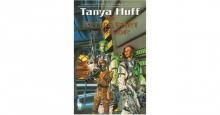 What Manner of Man
What Manner of Man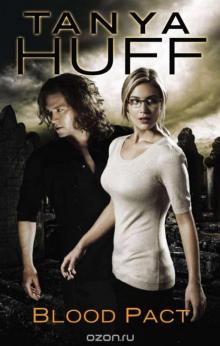 Blood Pact
Blood Pact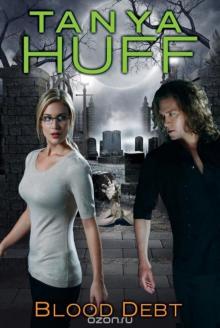 Blood Debt
Blood Debt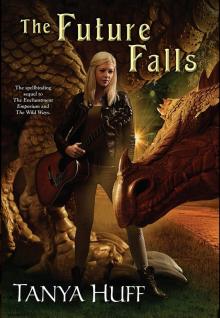 The Wild Ways
The Wild Ways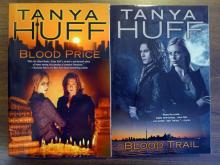 Blood Trail
Blood Trail Blood Shot
Blood Shot Wizard of the Grove
Wizard of the Grove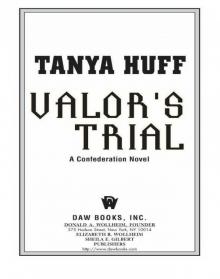 Valor's Trial
Valor's Trial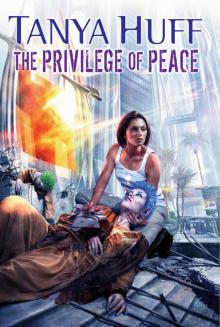 The Privilege of Peace
The Privilege of Peace A Peace Divided
A Peace Divided Three Quarters
Three Quarters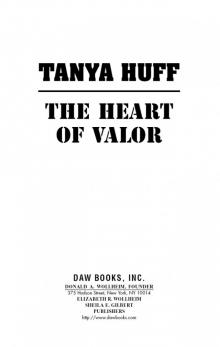 The Heart of Valor
The Heart of Valor No Quarter
No Quarter The Demon's Den and Other Tales of Valdemar
The Demon's Den and Other Tales of Valdemar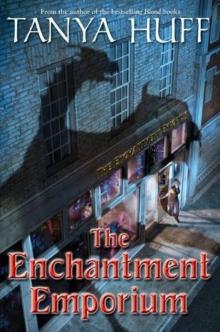 Enchantment Emporium
Enchantment Emporium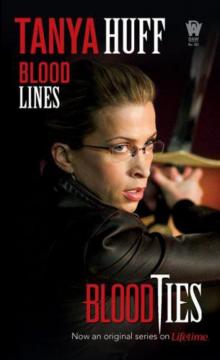 3 Blood Lines
3 Blood Lines The Heart of Valour
The Heart of Valour Smoke and Ashes
Smoke and Ashes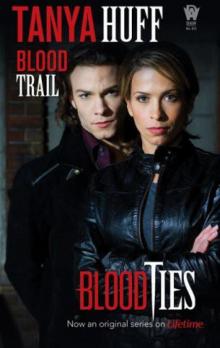 2 Blood Trail
2 Blood Trail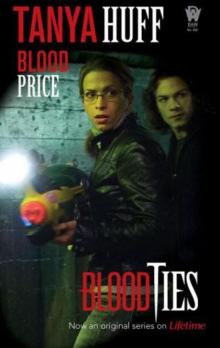 1 Blood Price
1 Blood Price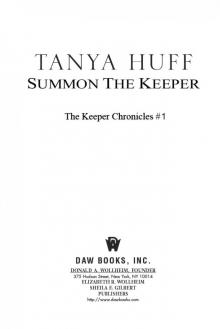 Summon the Keeper
Summon the Keeper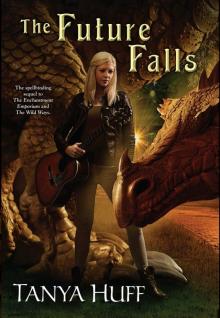 The Future Falls
The Future Falls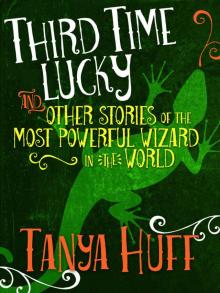 Third Time Lucky: And Other Stories of the Most Powerful Wizard in the World
Third Time Lucky: And Other Stories of the Most Powerful Wizard in the World The Second Summoning
The Second Summoning Fifth Quarter
Fifth Quarter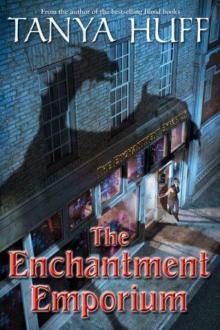 The Enchantment Emporium
The Enchantment Emporium An Ancient Peace
An Ancient Peace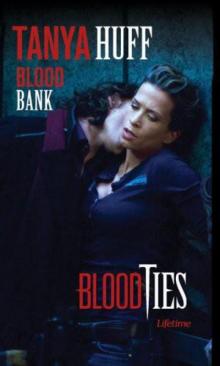 Blood Bank
Blood Bank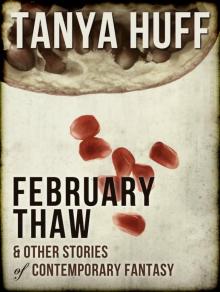 February Thaw
February Thaw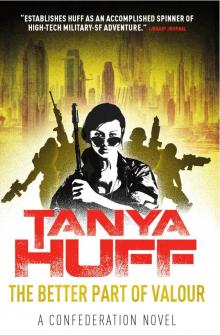 The Better Part of Valour
The Better Part of Valour The Silvered
The Silvered Valour's Choice
Valour's Choice Smoke and Shadows
Smoke and Shadows Sing the Four Quarters
Sing the Four Quarters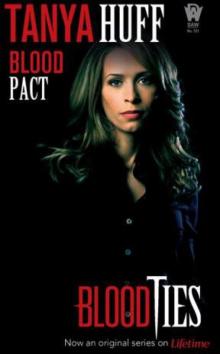 4 Blood Pact
4 Blood Pact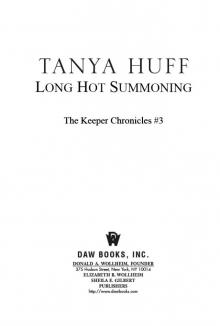 Long Hot Summoning
Long Hot Summoning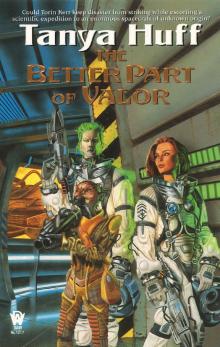 The Better Part of Valor
The Better Part of Valor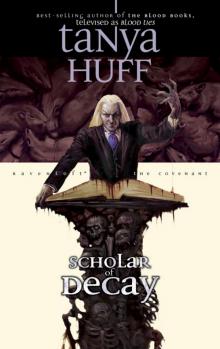 Scholar of Decay
Scholar of Decay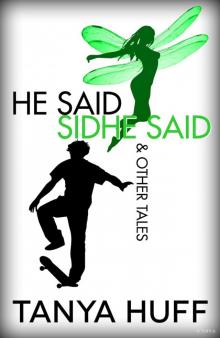 He Said, Sidhe Said
He Said, Sidhe Said Wild Ways
Wild Ways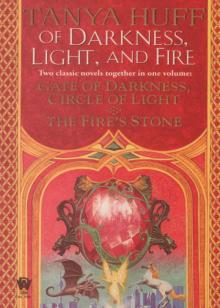 Gate of Darkness, Circle of Light
Gate of Darkness, Circle of Light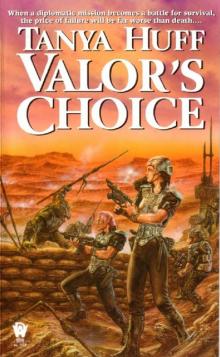 Valor's Choice
Valor's Choice Swan's Braid and Other Tales of Terizan
Swan's Braid and Other Tales of Terizan